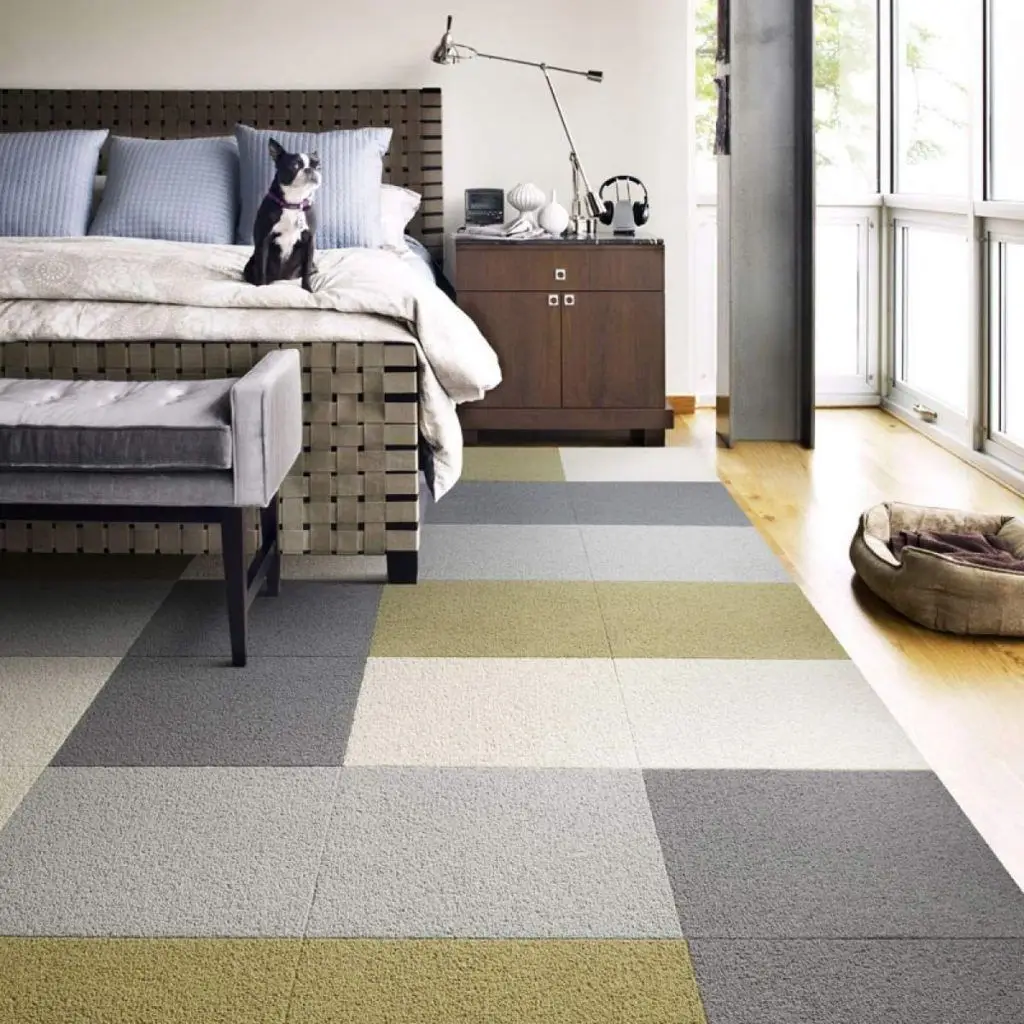Carpet tiles have become an increasingly popular flooring option for homes in recent years. Made of carpet bonded to a sturdy backing, carpet tiles can be installed on floors throughout the house. They offer many benefits over traditional wall-to-wall carpeting, but also have some drawbacks to consider. Here is an overview of the key pros and cons of using carpet tiles in residential settings.
The Upsides of Carpet Tiles
1. DIY-Friendly Installation
Perhaps one of the most appealing aspects of carpet tiles is their ease of installation. Many options come with a simple peel-and-stick feature, eliminating the need for professional installers, complex tools, or additional adhesives. This user-friendly approach is perfect for the hands-on homeowner looking to refresh their floors without breaking the bank.
2. Design Versatility
source: pinterest.com
The ability to mix and match different colours, patterns, and sizes of carpet tiles means you can let your creativity run wild. Whether you’re aiming for a uniform look or an eclectic mix, carpet tiles allow for personalized design choices. Plus, the ease of swapping out individual tiles makes updating your space or repairing damaged sections a breeze.
3. Cost Efficiency
Initially, carpet tiles often come with a lower price tag than their broadloom counterparts. The long-term cost benefits are also notable, especially considering the ability to replace single tiles as required, rather than re-carpeting an entire room.
4. Durability
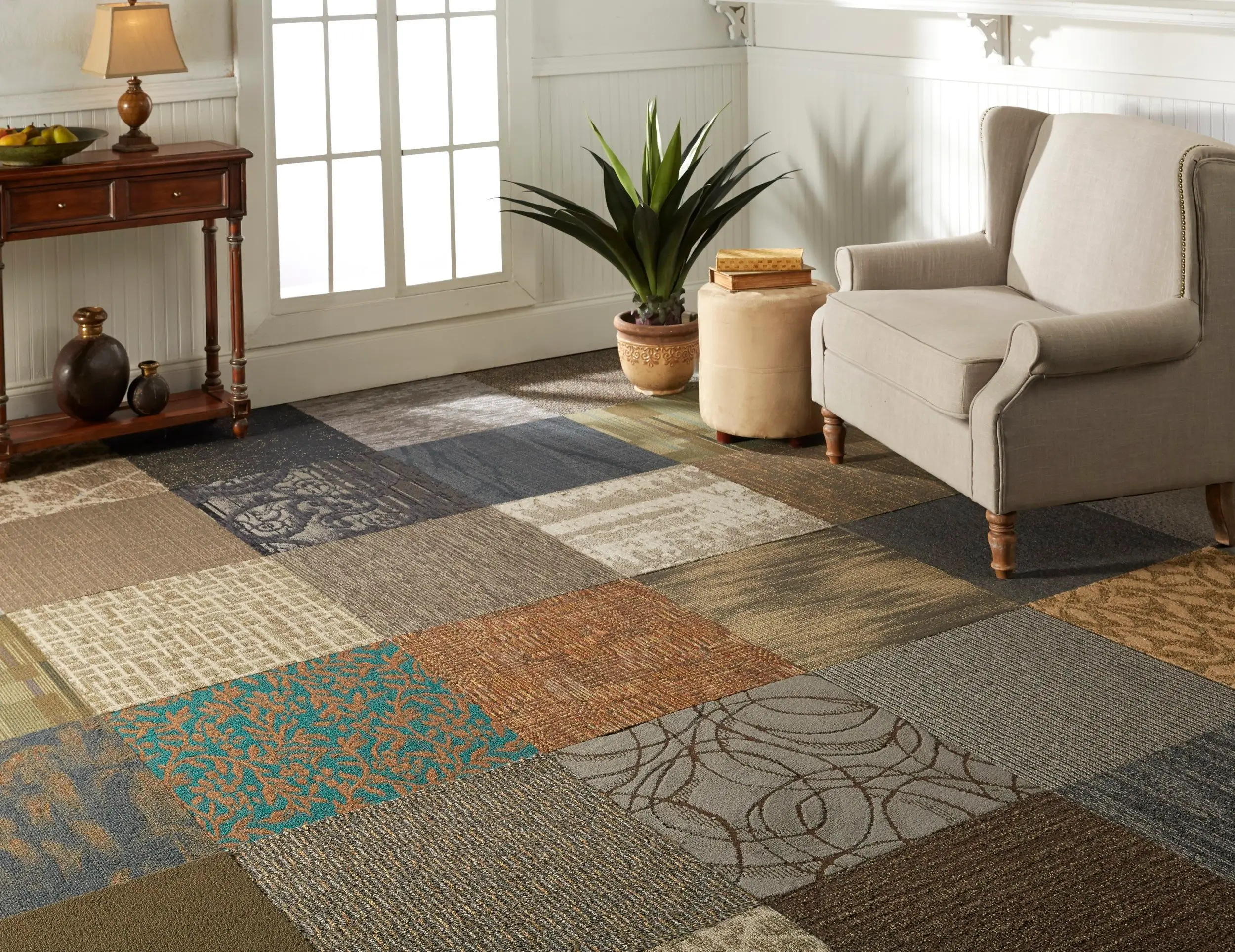
source: carpet.vidalondon.net
High-quality carpet tiles are built to last, boasting resistance to stains, moisture, and the general wear and tear of daily life. Their robust backing helps maintain the integrity of the carpet fibres, contributing to a longer lifespan, often backed by extensive warranties.
5. Simplified Maintenance
Cleaning carpet tiles is straightforward, thanks to their resistance to stains and the option to individually clean or replace tiles. This localized approach to cleaning means you can tackle messes effectively without the need for extensive carpet cleaning sessions.
6. Comfort Underfoot
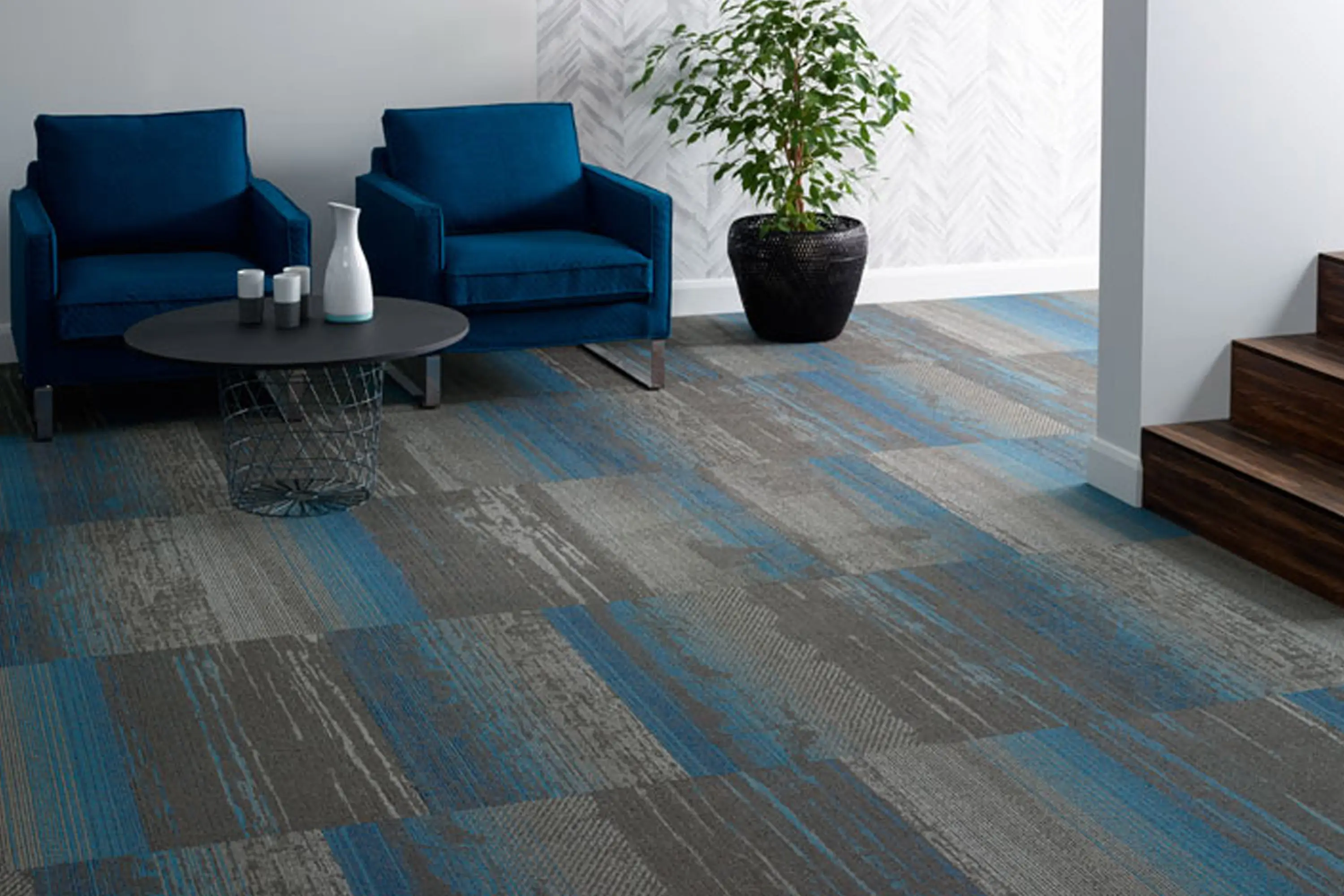
source: sultaco.com
The cushioning provided by carpet tiles offers a soft and warm surface, ideal for areas of your home where comfort is a priority, like playrooms and bedrooms. This feature is especially appreciated in homes with children, providing a safer and more comfortable play surface.
7. Noise Dampening Qualities
Noise Dampening Qualities: The sound-absorbing nature of carpet tiles makes them an excellent choice for rooms where you wish to minimize echo and noise transmission, such as bedrooms, living rooms, and media spaces.
8. Aesthetic Flexibility
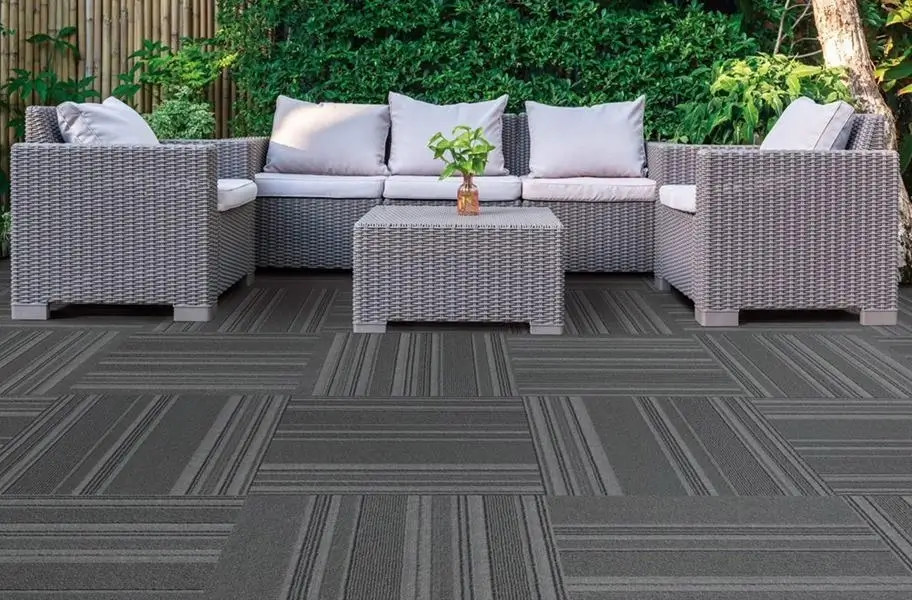
source: extremadurathome.org
With carpet tiles, you’re not limited to the patterns and designs typically found in broadloom carpeting. The ability to create custom designs, including borders and accent areas, allows for a dynamic and trendy flooring solution.
9. Comfort Underfoot
Carpet tiles are known for their low volatile organic compound (VOC) emissions, making them a healthier choice for indoor environments. Their dense construction also minimizes the accumulation of allergens, contributing to cleaner air in your home.
Cons of Carpet Tiles
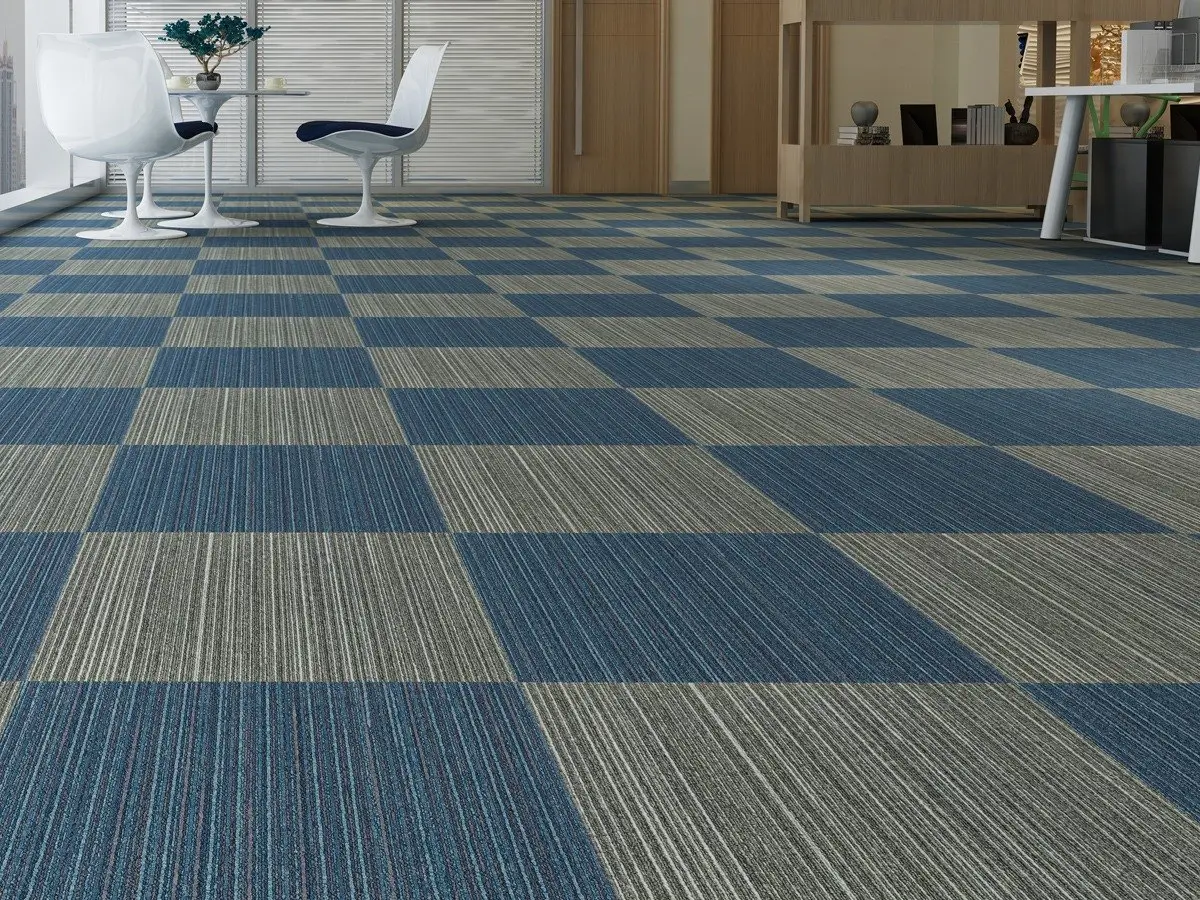
source: IndiaMART
1. Higher upfront cost
The initial investment for carpet tiles may be higher than some budget carpets or vinyl flooring. The material and installation costs add up for large rooms. The investment may pay off long-term, but is higher at initial purchase.
2. Installation challenges
While carpet tiles are straightforward for DIY installation, some challenges can occur. Miscalculation of the space can lead to gaps or the need to cut tiles. The seams between tiles may not always line up evenly. Patience and care is required.
3. Not suitable for all areas
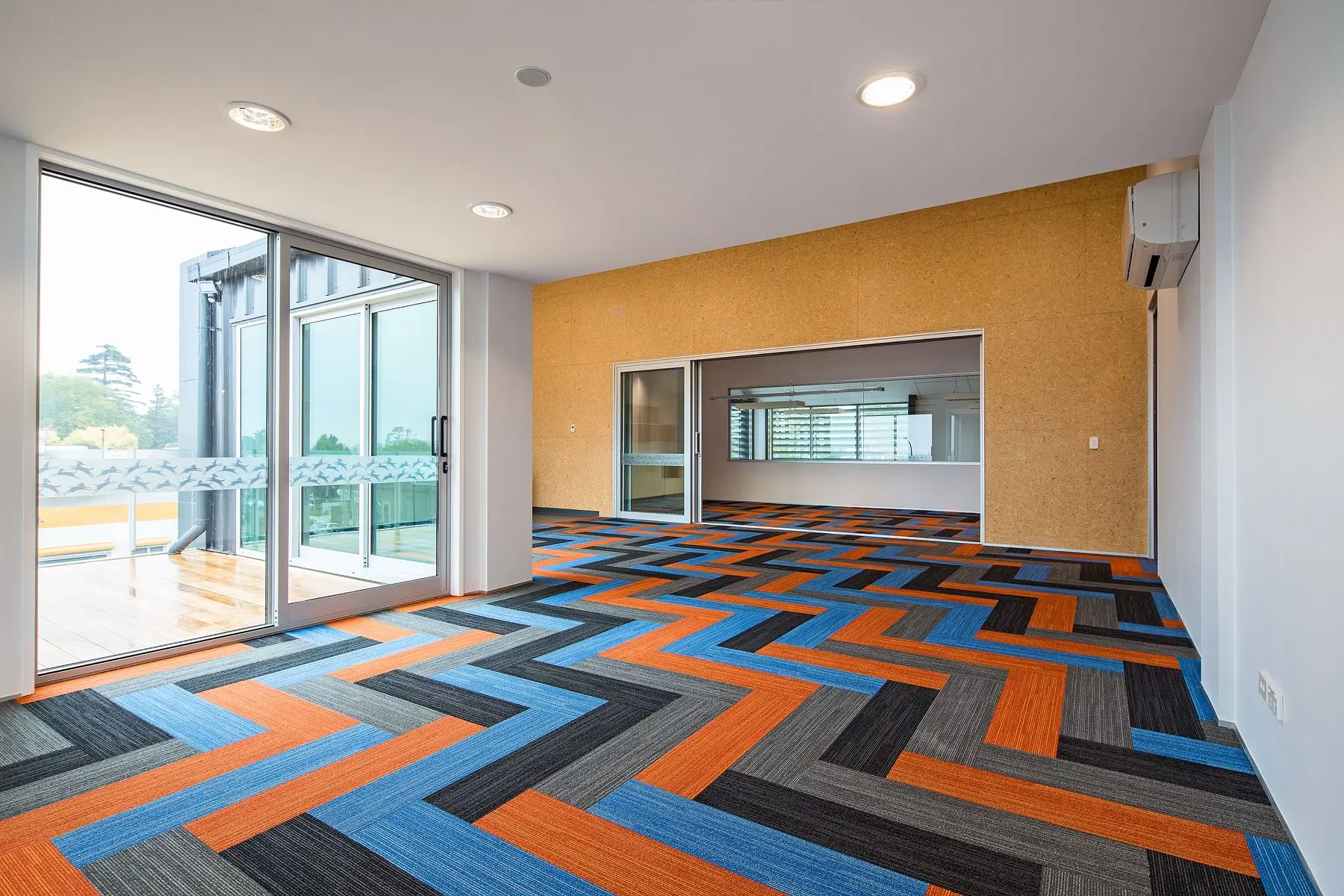
source: ramonwaller.blogspot.com
Carpet tiles are generally not recommended for bathrooms, laundry rooms, or other wet areas in a home. The tiles and seams can allow moisture penetration, leading to possible mould and mildew growth. Other smooth flooring is better for kitchens.
4. Appearance concerns
If not properly installed, the seams between carpet tiles may be visible and unattractive. Textural differences between batches of tiles can also be apparent after installation. Some homeowners don’t like the modular appearance.
5. Heavy furniture can cause issues
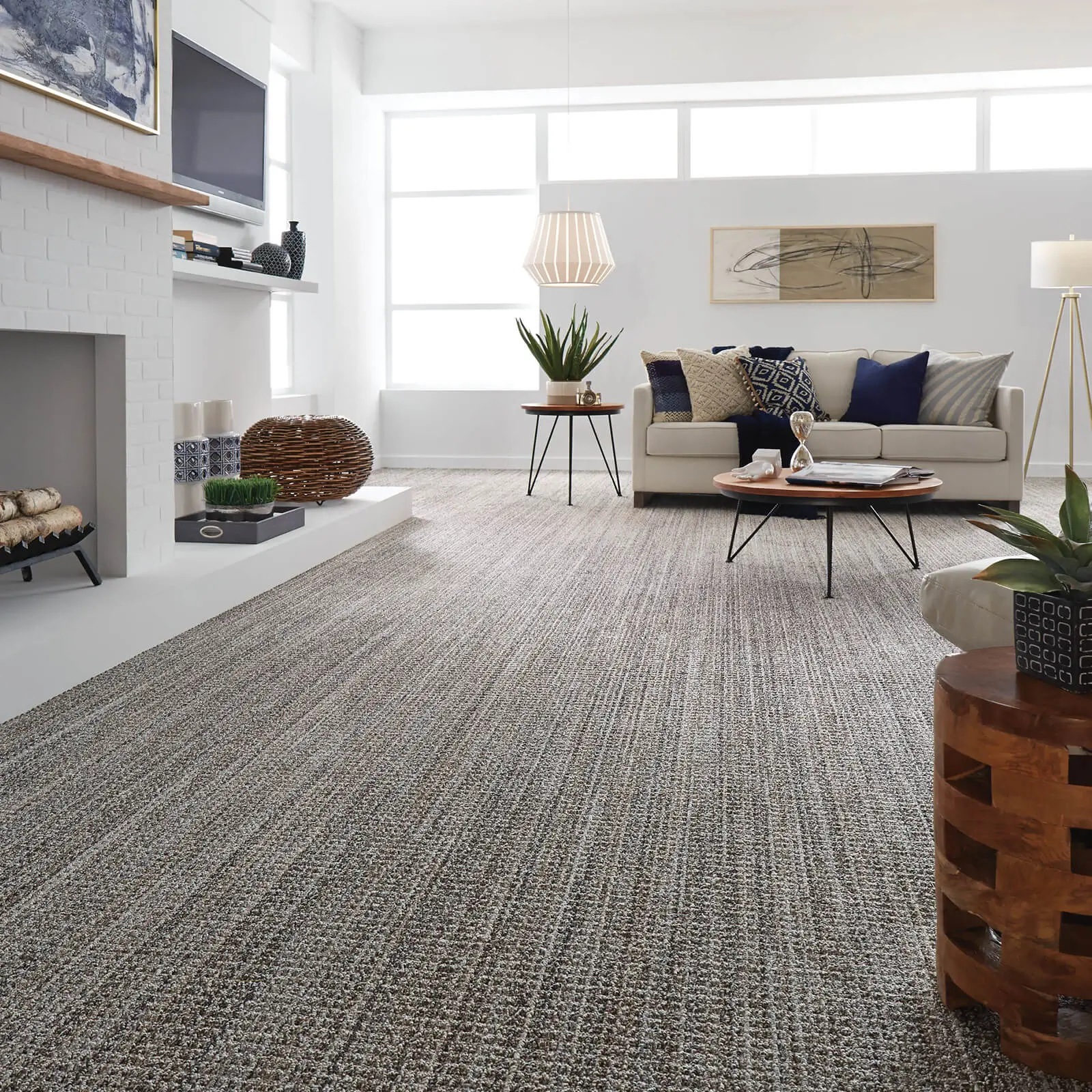
source: mccoolsflooring.com
The pressure and weight from heavy furniture legs can crush carpet tiles or cause them to shift over time. Extra care is required when moving heavy items across tile floors.
6. Limited options
Carpet tiles mostly come in square sizes of 18″x18″ or 24″x24″. This means that some cutting and planning is required to fit all room sizes and shapes. There are fewer design, pattern and colour options compared to broadloom carpeting. Customization is limited.
7. Not ideal for resale value
Carpet tiles may be seen as a lower-end flooring option and could negatively impact resale value of a home. Many buyers prefer hardwood or other floors. The modular nature may also turn some buyers away.
Summary
Overall, carpet tiles present an attractive flooring solution for many homeowners due to their design flexibility, durability, and DIY-friendly installation. However, their higher cost and limitations in some spaces should be factored in when deciding if they are the right choice for your home. With the right room placement and quality installation, carpet tiles can provide years of comfortable, customizable flooring. Though not ideal for every home, carpet tiles remain a smart and modern flooring option with significant advantages over traditional wall-to-wall carpeting.

